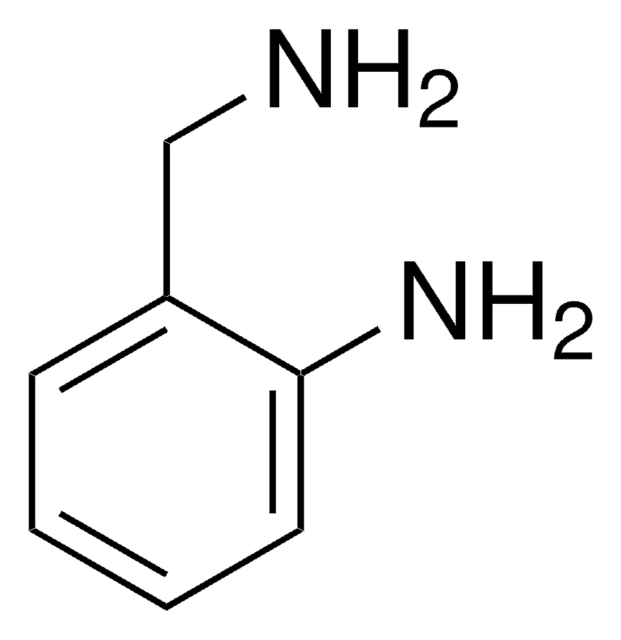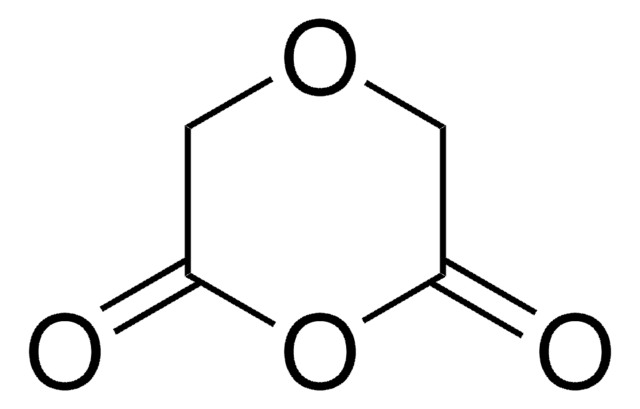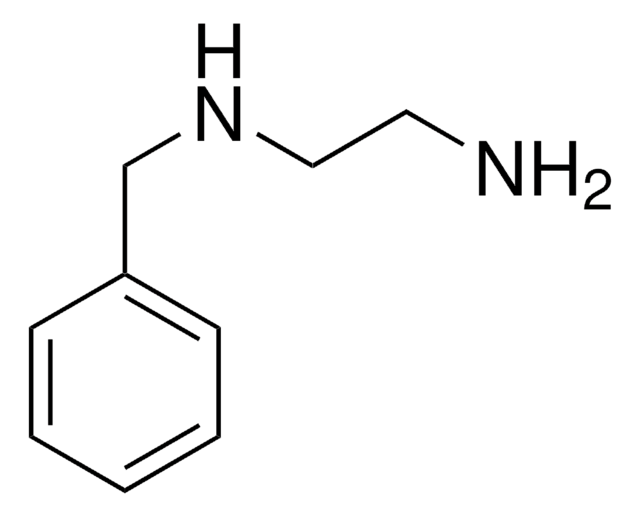368466
4-Aminobenzylamine
99%
Synonym(s):
4-(Aminomethyl)aniline, 4-(Aminomethyl)benzenamine, 4-Aminobenzenemethanamine, 4-Aminomethylphenylamine, Toluene-α,4-diamine, p-(Aminomethyl)aniline, p-Aminobenzylamine
About This Item
Recommended Products
Quality Level
Assay
99%
form
liquid
refractive index
n20/D 1.61 (lit.)
bp
101 °C/0.05 mmHg (lit.)
mp
37 °C
density
1.078 g/mL at 25 °C (lit.)
SMILES string
NCc1ccc(N)cc1
InChI
1S/C7H10N2/c8-5-6-1-3-7(9)4-2-6/h1-4H,5,8-9H2
InChI key
BFWYZZPDZZGSLJ-UHFFFAOYSA-N
Related Categories
General description
Application
- in the electrochemical modification of single-walled carbon nanotubes (SWCNTs), via oxidative coupling
- in the preparation of a novel acridine-based amino acid
- in the synthesis of two novel fluorescent Photoinduced Electron Transfer (PET) anion sensors, based on the principle of ′fluorophore-spacer-(anion)receptor′
- in anodic coupling of SWCNTs
- in the synthesis of polyacrylamide series containing salicylideneaniline moieties, by a double polymer analogous reaction with reactive precursor polymer poly(pentafluorophenylacrylate) (PPFPA)
Signal Word
Danger
Hazard Statements
Precautionary Statements
Hazard Classifications
Skin Corr. 1B
Storage Class Code
8A - Combustible corrosive hazardous materials
WGK
WGK 3
Flash Point(F)
235.4 °F - closed cup
Flash Point(C)
113 °C - closed cup
Personal Protective Equipment
Certificates of Analysis (COA)
Search for Certificates of Analysis (COA) by entering the products Lot/Batch Number. Lot and Batch Numbers can be found on a product’s label following the words ‘Lot’ or ‘Batch’.
Already Own This Product?
Find documentation for the products that you have recently purchased in the Document Library.
Customers Also Viewed
Our team of scientists has experience in all areas of research including Life Science, Material Science, Chemical Synthesis, Chromatography, Analytical and many others.
Contact Technical Service
![4-[(N-Boc)aminomethyl]aniline 97%](/deepweb/assets/sigmaaldrich/product/structures/341/155/530c425c-7e6e-435e-a28a-9d40b05b938a/640/530c425c-7e6e-435e-a28a-9d40b05b938a.png)













